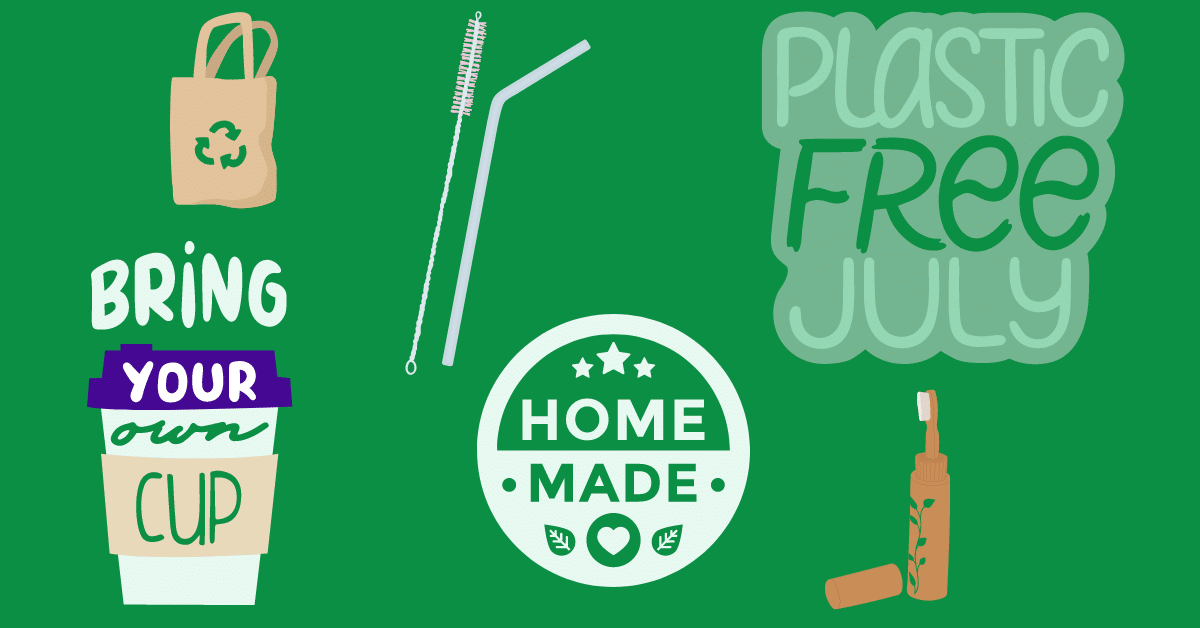
Embracing Plastic Alternatives: A Guide for Plastic Free July
Plastic Free July is a global movement that encourages individuals and communities to reduce their plastic usage for the entire month of July. As awareness of plastic pollution grows, many are seeking sustainable alternatives to everyday plastic items. Here are some practical and effective swaps that can help you reduce your plastic footprint this month and beyond.
According to Carallo Engineers, “Microplastics, small plastic particles with sizes ranging from 5 millimeters to 1 nanometer with various morphologies such as microfibers, fragments, pellets (nurdles), or microbeads, have received increasing attention, including upcoming statewide monitoring in California. While co-occurrence is well-known for a variety of contaminants like triclosan and triclocarban, the connection between microplastics and PFAS has not been studied in much detail despite being linked together in multiple ways. Not only can some PFAS occur as microplastics such as polyvinyl fluoride (PVF) and polytetrafluorethylene (PTFE), it is also used as a coating on synthetic textiles and plastic components that then break down to fiber- or particle-based macro-, meso-, or microplastics.”
Reusable Shopping Bags and Produce Bags
One of the simplest and most impactful changes you can make is to switch to reusable shopping bags and produce bags. Single-use plastic bags are a major contributor to plastic pollution, often ending up in oceans and harming marine life. Reusable bags, made from materials like cotton, jute, or recycled plastics, are durable and can be used countless times. For produce, mesh or lightweight fabric bags are excellent for carrying fruits and vegetables without the waste.
Eco-Friendly Food Storage
Another area ripe for change is food storage. Instead of relying on plastic wrap or zip-lock bags, consider alternatives like beeswax wraps, silicone food covers, and glass containers. Beeswax wraps are made from organic cotton coated with beeswax, tree resin, and jojoba oil, and can be molded around food and dishes to keep them fresh. Silicone food covers stretch to fit various container sizes and are perfect for covering leftovers. Glass containers are a sturdy, non-toxic option for storing meals and snacks.
Sustainable Personal Care Products
Personal care products often come in plastic packaging or contain microplastics. Switching to sustainable alternatives can significantly reduce your plastic waste. For instance, bamboo toothbrushes, solid shampoo bars, and refillable deodorant sticks are all excellent options. Bamboo toothbrushes are biodegradable, while shampoo bars eliminate the need for plastic bottles and can last as long as two to three bottles of liquid shampoo. Refillable deodorant sticks allow you to keep the outer container and simply replace the inner product.
By adopting these plastic alternatives, you can make a meaningful contribution to the fight against plastic pollution. Plastic Free July is a perfect opportunity to rethink your habits and make sustainable choices that benefit the planet. Each small change adds up to a significant impact, fostering a healthier environment for future generations.